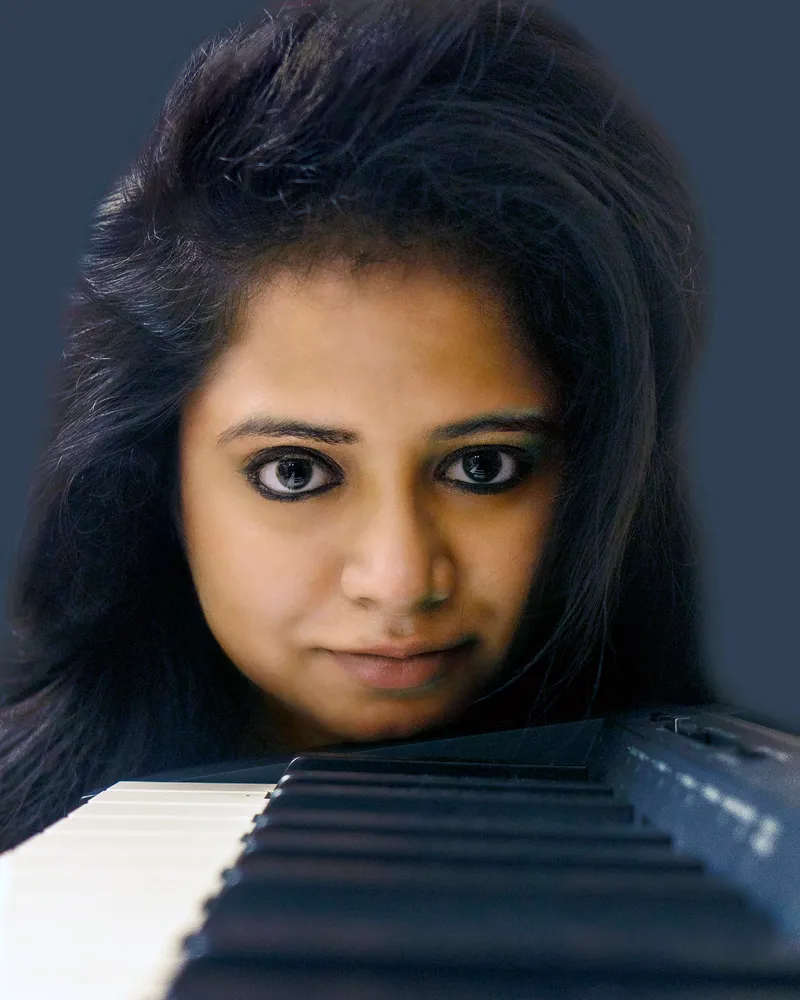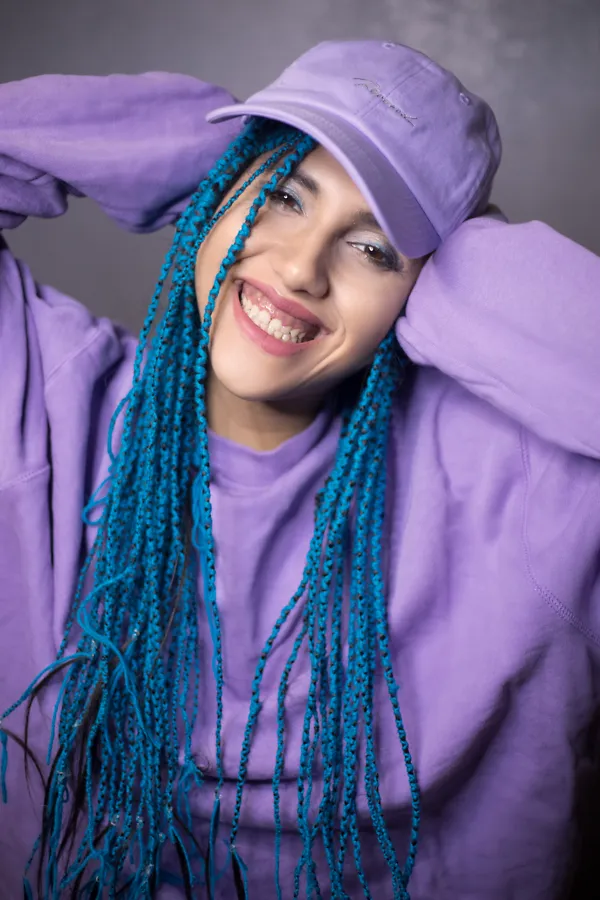Talking music with Alokananda Dasgupta and Nikhita Gandhi - how Spotify is shining the spotlight on women with AmplifiHER
HerStory speaks to musicians Alokananda Dasgupta and Nikhita Gandhi to understand their growth in the industry, the impact of AmplifiHER, and what more can be done for women to rise to the top.
There aren’t enough women in the Indian music industry, and it’s time to shine the light on women making a mark in this sector – from artists, lyricists, producers, and podcasters. In this age of audio streaming, the spirit of women shaping India’s audio ecosystem needs to be celebrated and highlighted.
To amplify this, Spotify launched a year-long initiative, AmplifiHer, with a one-of-a-kind platform focused on women artists.
Speaking to HerStory, Vasundhara Mudgil, Head of Communication – Spotify, said, “The initiative was conceptualised for three reasons. First, to put the spotlight on women in audio who are already an inspiration to upcoming talent. We wanted to identify and provide platforms where these advocates could tell stories of their learnings and success to their fans and anyone who wants to be a part of the music and podcast industries. Second, we wanted to enable easier discovery of audio content featuring female talent.”
Over the past six months, Spotify has featured 30 fresh podcasts as part of AmplifiHer, both on the microsite and on the platform itself. Twenty-four women in audio have also been profiled across music and podcasts.
These conversations aim to drive inspiration from real-life stories of women in front of the mic and behind the scene in audio.
In this context, HerStory profiles contemporary music composer Alokananda Dasgupta and famous playback singer Nikhita Gandhi on their successful careers and how Spotify enables musicians like them to gain global recognition.
Alokananda Dasgupta, music composer and director

Alokananda Dasgupta
Alokananda Dasgupta does not remember when films and music did not touch her life. Daughter of famous poet and filmmaker Buddhadeb Dasgupta, Aloka was inspired to take up music by her mother.
“While studying literature in Kolkata, I was also learning the piano. It made logical sense to pursue this in some way. By then, I knew I wasn’t a performer but wanted to study music,” she recalls.
Aloka moved to Toronto, where she completed her bachelor’s degree in music performance and composition at York University.
Though she started composing music very young, Aloka reveals she would never show it to anybody. But in Toronto, the fear started waning, and she found a way to express her music without performing in front of anybody.
Her early influences in music include western classical music, Rabindra Sangeet, Pink Floyd, the Beatles, Carpenters, and many world films.
These, the family listened to on audio cassettes and even vinyl.
Her first professional composition for the Marathi film, Shala, won her a National Award in 2010.
Since then, she has composed music for BA Pass, Fandry, Anwar Ka Ajab Kissa, Asha Jaor Majhe, Trapped, besides composing background scores for the web series Breathe, Sacred Games, and Leela.
Her music, she admits, has evolved by exploring different genres.
“I am a very restless person in general and sometimes get bored of my stuff. So, there is always a need to evolve. If you are a music composer, your work entails listening to other people and getting their validation and approval. It’s an outstanding balance to strike between want you want versus what they want. So, in striking that balance, you must enjoy listening and evolve by wanting to do something different,” she says.
Aloka says working in the Marathi film industry has been a defining experience.
“I was fortunate to meet an unassuming director like Nagraj Manjule. You’d probably think that because it’s a smaller industry, there’s probably less interest in the score, but Nagraj’s interest in ideas and music is highly specified. I was given a lot of freedom. Working in the industry was a brilliantly strange experience where I did not feel the pressure of the rat race in Mumbai,” she adds.
Aloka believes that all artists need to start getting the recognition they deserve. She asks, “Why don’t we start from scratch and try and hear them out without putting them down?”
She says that she has ignored gender bias from the beginning in a male-dominated industry.
“The only thing is to swim against the current, not be afraid, and keep swimming.”
She agrees that platforms like Spotify’s AmplifiHer give artists a ‘big licence and liberty to express themselves, especially when they are fighting for it everywhere else’.
“You make your music, you put it out there; you don't need a middleman, you don't need to run through hierarchies, you don't need to be put down. You don't need to do all these complications, which are part of the industry. Sometimes, it's as simple as, hey, I good music, and I want to express it. And I want you to listen to what say; it's as simple as that,” Aloka says.
Nikhita Gandhi, playback singer

Nikhita Gandhi
Nikhita Gandhi is a playback singer and sings in four Indian languages. She is popularly known for her songs in AR Rahman’s OK Kanmani, the title track of Raabta, and the Bengali song, Mithe Alo.
Born and raised in Kolkata, music and dance was a big part of the culture, and she learned Hindustani music and Odissi. Being a professional singer was not part of the plan, but the culture certainly helped. In school, she would compose songs on the harmonium and later the guitar.
Initially, music was just a big part of who she was, but not necessarily what she wanted to be.
Moving to dental school in Chennai changed the trajectory of her life and career. She joined a part-time course at AR Rahman’s KM Music Conservatory to continue with her music and stress buster.
“Somebody liked my voice, and they called me for like these, you know, these Hilton lounge gigs, and stuff, and I started doing those on Friday nights. It was just for the experience. Even when Rahman Sir heard my voice from an audition and called me for his project, I still wasn’t convinced it was my path. I thought it was a crazy, cool experience,” Nikhita recalls.
During a session, Rahman asked her what she planned to do after college. She replied that she was applying for a master’s, to which he said, ‘you are a singer, you’re gonna be singing’.
For the first time, Nikhita considered becoming a musician full time because it came from AR Rahman. The transition, she says, was smooth.
Some of Nikhita’s top hits are in Tamil.
“I think it helped that I was living in Chennai, and I was surrounded by people who spoke the language. It’s a tough language for someone who is not familiar with any of the South Indian dialects. It did make it easier because I understood the vibe with which you pronounce words. I think my first song, Lady O, sort of broke the ice, and it got easier after that,” she says.
Nikhita’s journey in independent music has also been an exciting one.
“I was always writing stuff and composing songs. I didn't know whether they were good or bad. I would just make things this for my joy. And once this Bollywood career kicked off, and I started singing a lot of films, it worked for me in a reverse manner because it gave me the confidence to sort of work on my music,” she explains.
During the lockdown, she started releasing a lot of her compositions, an English song, Recreational Love. She received calls from some of the most prominent singers, composers, singers, producers – asking her to produce.
While the singer-composer does not believe that women should be treated differently, the truth is there are very few women in the music industry.
“I think women have a much more interesting flavour to add to the music. While singing is preferred as a career, songwriting and producing is a far less explored space. We need more initiatives like AmplifyHer to change the colour of singing,” she says.
In the future, Nikhita is looking forward to collaborations with different artists with whom she can mix ideas.
Edited by Teja Lele








